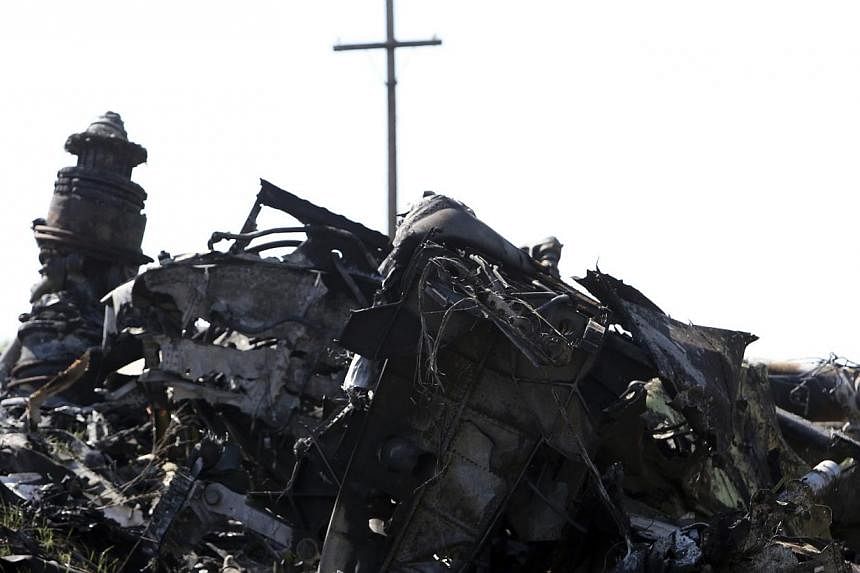TORONTO (REUTERS) - A United Nations aviation task force, set up following the downing of a Malaysian airliner over Ukraine last month, will consider whether authorities should be forced to share safety intelligence, according to documents obtained by Reuters.
The task force set up by the United Nations' International Civil Aviation Organisation (ICAO) and including members of the airline industry and other aviation groups meets for the first time on Thursday and Friday in Montreal.
The task force has been asked "to consider the need for enforceable compliance provisions for the identification and dissemination" of information about risks to civil aircraft.
Interpol, the international police body, as well the UN and African Union counterterrorism committees, have been invited to join the task force, according to the documents. The group has also asked countries to nominate intelligence authorities to the task force, along with aviation bodies.
Malaysia Airlines' Flight MH17 went down over eastern Ukraine on July 17, killing nearly 300 people. Western states believe that pro-Russia rebels brought down the plane, using a missile supplied by Russia.
Following the incident, airlines and industry groups have been pushing for better access to impartial, consistent intelligence about whether to fly over conflict zones.
While ICAO sets safety guidelines, it does not open or close airspace in conflict zones or offer specific guidance on where missiles might threaten civil airliners. That is left to member states.
Giving ICAO or another agency the job of warning about airline risks in conflict zones would mean asking states to share sensitive information about their military and political affairs, a key stumbling block.
The task force will also look at what new international agreements might need to be created to ensure that safety information is distributed.
The task force's recommendations will go to ICAO's governing council, which would need to approve any significant change to the organisation's mandate or procedures. The first recommendations should be ready within eight weeks according to the documents.

